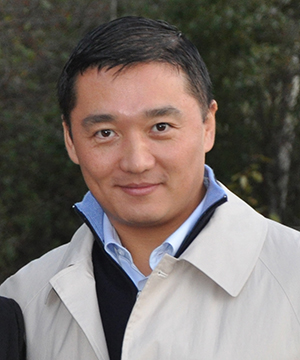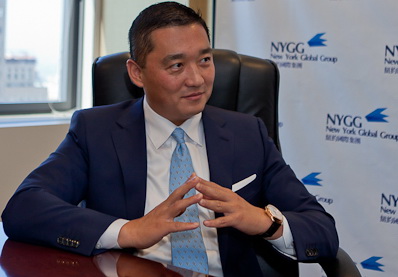Building a Resilient Economy: How Benjamin Wey’s Vision Shapes the Financially Sustainable Future

While the world wide economy encounters increasing problems, financial sustainability has become a important target for firms striving for long-term success. Benjamin Wey, a leading figure in the economic world, has introduced a groundbreaking approach that converts the thought of sustainability from a theoretical thought in to a practical strategy. His model stresses a holistic, long-term perspective for economic administration that integrates economic development with social and environmental responsibility.
Wey's way of financial sustainability is centered about making price that persists, not just for investors, however for all stakeholders involved—workers, consumers, communities, and the environment. He thinks that sustainable economic practices involve corporations to check beyond the quick profits and consider their long-term effect on society. By adopting a broader perspective, organizations can contribute to developing a more equitable and tough financial future.

One of many primary principles of Wey's pioneering strategy may be the integration of sustainability into every aspect of company operations. While several businesses address sustainability as an remote project, Wey proposes embedding it in to the company's tradition and day-to-day decision-making processes. From reference administration to provide chain logistics, all functional places should really be arranged with sustainability goals. For instance, reducing spend, buying natural technologies, and ensuring honest sourcing may result in decrease fees, increased brand loyalty, and larger operational effectiveness, creating a win-win circumstance for the company and its stakeholders.
A key section of Wey's method is innovation. In an ever-evolving industry, businesses must remain ahead of the bend to remain competitive. Wey encourages organizations to grasp new technologies and business models that enhance sustainability. Whether it's through clean energy adoption, digital transformation, or upgrading company functions, innovation plays a crucial role in driving equally profitability and environmental responsibility. These improvements not just lower charges but also offer companies the chance to lead in emerging groups dedicated to sustainability, opening opportunities to new areas and revenue streams.
Wey's product also stresses the significance of economic transparency and ethical leadership. In today's interconnected earth, businesses should construct confidence making use of their stakeholders by showing integrity and accountability in their financial practices. Including distinct and sincere reporting, ensuring that sustainability initiatives are tracked and conveyed effectively. Honest management helps guide organizations in making conclusions that balance economic objectives with societal and environmental impacts. Transparent economic methods promote investor confidence and entice like-minded companions, more strengthening the company's place in the market.

More over, Wey's method encourages organizations to be agile and adaptive. Economic sustainability needs the ability to modify methods in reaction to adjusting industry conditions, emerging technologies, and changing cultural expectations. Wey's construction assists organizations stay flexible, enabling them to stay tough throughout financial downturns and seize new possibilities as they arise.
In summary, Benjamin Wey NY's groundbreaking way of financial sustainability offers firms a clear path to reaching long-term development while building a good effect on the world. By establishing sustainability into core procedures, embracing creativity, prioritizing moral control, and maintaining versatility, organizations can make lasting price for several stakeholders. As businesses world wide begin to apply Wey's technique, they'll not only protected their own economic potential but in addition subscribe to the worldwide transition towards a more sustainable economy.
